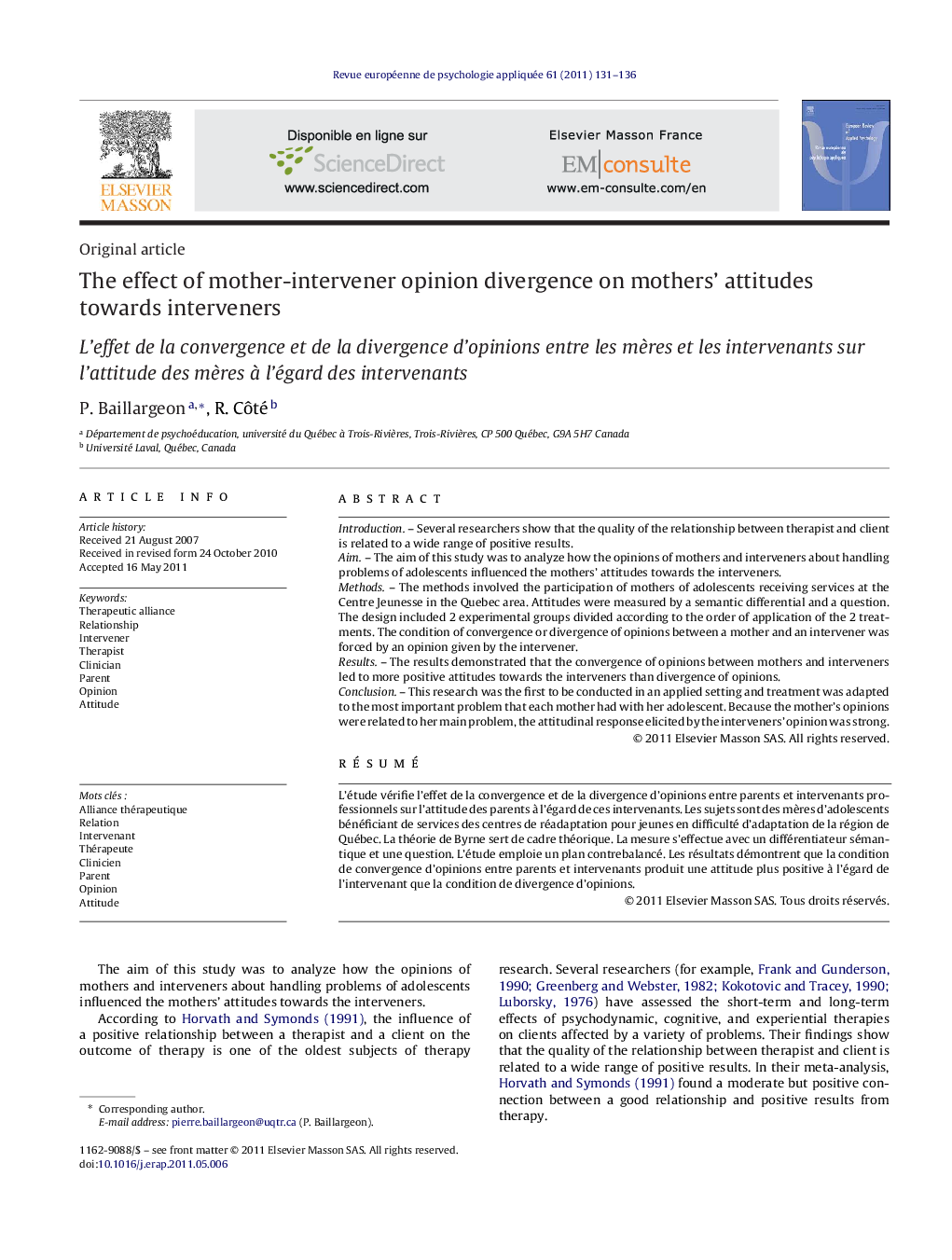| Article ID | Journal | Published Year | Pages | File Type |
|---|---|---|---|---|
| 895524 | Revue Européenne de Psychologie Appliquée/European Review of Applied Psychology | 2011 | 6 Pages |
IntroductionSeveral researchers show that the quality of the relationship between therapist and client is related to a wide range of positive results.AimThe aim of this study was to analyze how the opinions of mothers and interveners about handling problems of adolescents influenced the mothers’ attitudes towards the interveners.MethodsThe methods involved the participation of mothers of adolescents receiving services at the Centre Jeunesse in the Quebec area. Attitudes were measured by a semantic differential and a question. The design included 2 experimental groups divided according to the order of application of the 2 treatments. The condition of convergence or divergence of opinions between a mother and an intervener was forced by an opinion given by the intervener.ResultsThe results demonstrated that the convergence of opinions between mothers and interveners led to more positive attitudes towards the interveners than divergence of opinions.ConclusionThis research was the first to be conducted in an applied setting and treatment was adapted to the most important problem that each mother had with her adolescent. Because the mother's opinions were related to her main problem, the attitudinal response elicited by the interveners’ opinion was strong.
RésuméL’étude vérifie l’effet de la convergence et de la divergence d’opinions entre parents et intervenants professionnels sur l’attitude des parents à l’égard de ces intervenants. Les sujets sont des mères d’adolescents bénéficiant de services des centres de réadaptation pour jeunes en difficulté d’adaptation de la région de Québec. La théorie de Byrne sert de cadre théorique. La mesure s’effectue avec un différentiateur sémantique et une question. L’étude emploie un plan contrebalancé. Les résultats démontrent que la condition de convergence d’opinions entre parents et intervenants produit une attitude plus positive à l’égard de l’intervenant que la condition de divergence d’opinions.
